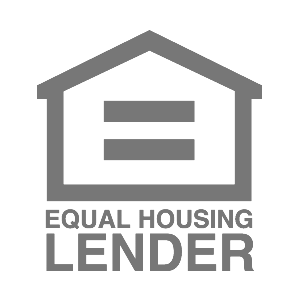
Everyone experiences some type of financial emergency throughout life, such as a sudden job loss, medical event, or car repair. But these moments can be even more challenging when you don’t have a job.
One solution is to apply for financing to cover an unexpected expense, but getting an emergency loan with no job is trickier than when you’re employed.
Everybody starts somewhere. If your credit score is under 600, you might not qualify for a personal loan through Prosper. The good news is, we’ve partnered with AmOne, a financial services search resource. You might qualify for a personal loan through AmOne based on your financial situation. Click here to visit AmOne and learn more.
The U.S. unemployment rate has been steadily ticking upwards over the last year, increasing from 3.5% in July 2023 to 4.3% in July 2024, which means more people are likely to need financial help without the income they’re used to.
Here’s what to know about getting unemployed emergency loans, plus alternative solutions to consider.
How to get an emergency loan when you’re unemployed
Research lender eligibility requirements
Start the process by researching eligibility requirements for different lenders. You’ll likely need some income, which could come from various sources, including unemployment financial assistance benefits or a co-applicant’s earnings.
Be wary of lenders that advertise no-income loans. These are typically predatory and could result in hidden fees.
Many predatory lenders fail to publish all the details related to the loan, such as excessive rates, fees, and risk-based pricing. Many borrowers end up defaulting because of these practices.
When searching for lenders, check for any credit requirements. Some may have a firm minimum credit score, while others may look at your entire application holistically.
Finally, focus on lenders who offer loans within the range you’re looking for. Some have a minimum loan amount. But you don’t want to borrow more than necessary because your monthly payments will be higher, and you’ll pay interest on funds you don’t need.
Get prequalified with multiple lenders
Once you create a list of lenders you want to consider, it’s time to get prequalified for an emergency loan with no job.
Online lenders often have an online prequalification tool that lets you check your eligibility before submitting a formal application and getting a hard pull on your credit report.
You usually need to submit a few details like your income, other debts, and estimated credit score range. Note that you may only be able to apply for a prequalification with a single borrower. You may need to submit a formal application to see a joint personal loan offer.
Compare loan offers
A loan prequalification is not a formal loan offer, but it gives you a basic idea of how much you may be able to borrow, what rate you qualify for, and what the monthly payment would look like.
You should also see any fees the lender will charge, like an origination fee. This administrative fee is charged upfront and may either be rolled into your loan amount or deducted from your funding before it arrives in your bank account.
Also, consider lenders that don’t charge a prepayment penalty. If you regain your financial footing with a new job, you can pay off the loan early without additional fees.
Submit a full application
Applying for a personal loan is easy when you pick an online lender. You fill out some personal details and upload copies of the requested documentation. Lenders use this information to verify your identity, income, and credit score. Here’s what you may need to have on hand:
- Recent paystubs or unemployment check
- Tax returns
- Bank statement
- Employer contact information
You’ll also need to submit your social security number so the lender can run a hard credit check. Overall, the application and approval processes could be as fast as five minutes.
Keep in mind that the official offer will depend on verifying the application information, a process that may take a day or two.
Sign your loan agreement
If approved, the lender will send you a loan agreement for signature. Double-check the details for any changes to your prequalification offer.
You’re not committed to the loan even now, so it’s ok to decline if the loan amount or interest rate changes and you’re uncomfortable with the payments.
But if everything looks good, you can electronically sign and return the loan agreement. Shortly afterward, the lender should initiate the loan fund disbursement.
Requirements for emergency loans
Before you start applying for an emergency loan with no job, consider the basic eligibility requirements. There are three primary characteristics that lenders review.
Credit score
Lenders look at your credit score to see if you’ve reliably repaid debt in the past. A strong credit score could help you get approved for an emergency loan with no job, especially if you have a consistent repayment history.
Income
Qualifying for the income requirement can be difficult when you don’t have a job. But remember that income outside of a job could still count in your loan application. For instance, you could use interest and dividends, retirement benefits, unemployment benefits, alimony or child support.
However, the amount you can borrow will vary based on how much the lender thinks you could repay with your current income sources.
If possible, consider applying with a co-applicant to use their income to qualify for an emergency loan. Just remember that their credit score is also used in the application, and they are equally responsible for loan payments.
Other debt
Lenders calculate your debt-to-income ratio using your monthly gross income and your current monthly payments for credit card debt and loans. They will have a maximum threshold of how much you can spend on debt each month, which impacts how much you can borrow.
Your lender may also have a few other requirements to apply, such as being at least 18 years old and a resident of a state where the lender is licensed to do business. You also may need a bank account to receive the loan funds.
Alternatives to emergency loans
If you’re not sure if an emergency loan is right for you, here are some alternative options to consider when you need cash fast.
Borrow money from a loved one: You may be able to tap into your network of friends or family to help you with an emergency expense. According to the Federal Reserve, this is one of the top ways adults cover unexpected expenses when they can’t pay cash, with 10% of respondents choosing this option.
Explore community resources: You may have access to financial support through government assistance programs, community resources, and charitable organizations, especially when you’re unemployed. Search for local assistance for things like childcare subsidies, food pantry items, and more.
Use a 0% APR credit card: While a credit card application still usually verifies your income, you could qualify for a small credit line even with no job. And you’ll save money if you qualify for a credit card that comes with a 0% or low introductory APR. If you stay current with your payments, you could charge some of your expenses without accruing any substantial interest.
Apply for a HELOC: A home equity line of credit (HELOC) offers low-interest financing using your home equity as collateral. However, you still need to have income to cover the payments. There’s also the risk of losing your home to foreclosure if you fall behind on your HELOC payments, so it’s wise to use caution before moving forward with this option.
Navigating emergency expenses with no job
When you find yourself with a sudden expense and not enough savings in your emergency fund to cover it, consider all the available resources.
You may qualify for a personal loan when you have other sources of income beyond job wages. And if you don’t, a co-applicant can help you qualify and get the money you need—if both of you are comfortable with the arrangement.
FAQs
Is it possible to get a loan if you don’t have a job?
Yes, it is possible to get a loan if you don’t have a job. But you’ll need some type of income, such as unemployment, retirement benefits, alimony, or child support.
What is the easiest loan to get approved for?
Try to avoid predatory lenders that offer fast cash and short-term loans in exchange for minimum application requirements. Instead, choose a reputable lender and focus on qualifying for the smallest loan amount possible to improve your approval odds.
How can I borrow money in an emergency?
Many lenders offer quick approval and funding times. When exploring your options, find out how fast you can get approved and how long it takes to disburse loan funds.
Written by Lauren Ward | Edited by Rose Wheeler
Lauren Ward is a personal finance writer who is passionate about helping people simplify their financial decisions. Her work has been featured in outlets such as USA Today Blueprint, CNN Underscored, and many more. She lives in Virginia with her husband and three children.
All personal loans made by WebBank.
Eligibility for a home equity loan or HELOC up to the maximum amount shown depends on the information provided in the home equity application. Depending on the lender, loans above $250,000 may require an in-home appraisal and title insurance. Depending on the lender, HELOC borrowers must take an initial draw of the greater of $50,000 or 50% of the total line amount at closing, except in Texas, where the minimum initial draw at closing is $60,000; subsequent HELOC draws are prohibited during the first 90 days following closing; after the first 90 days following closing, subsequent HELOC draws must be $1,000, or more, except in Texas, where the minimum subsequent draw amount is $4,000.
The amount of time it takes to get funds varies. It is measured from the time the lender receives all documents requested from the applicant and depends on the time it takes to verify information provided in the application. The time period calculation to get funds is based on the first 4 months of 2023 loan fundings, assumes the funds are wired, excludes weekends, and excludes the government-mandated disclosure waiting period.
For Texas home equity products through Prosper, funds cannot be used to pay (in part or in full) non-homestead debt at account opening.
Depending on the lender, qualified home equity applicants may borrow up to 80% – 95% of their primary home’s value and up to 80% – 90% of the value of a second home. In Texas, qualified applicants may borrow up to 80% of their home’s value. HELoan applicants may borrow up to 85% of the value of an investment property (not available for HELOCs).
Home equity products through Prosper may not be available in all states.
All home equity products are underwritten and issued by Prosper’s Lending Partners. Please see your agreement for details.
Prosper Marketplace, Inc. NMLS# 111473
Licensing & Disclosures | NMLS Consumer Access
